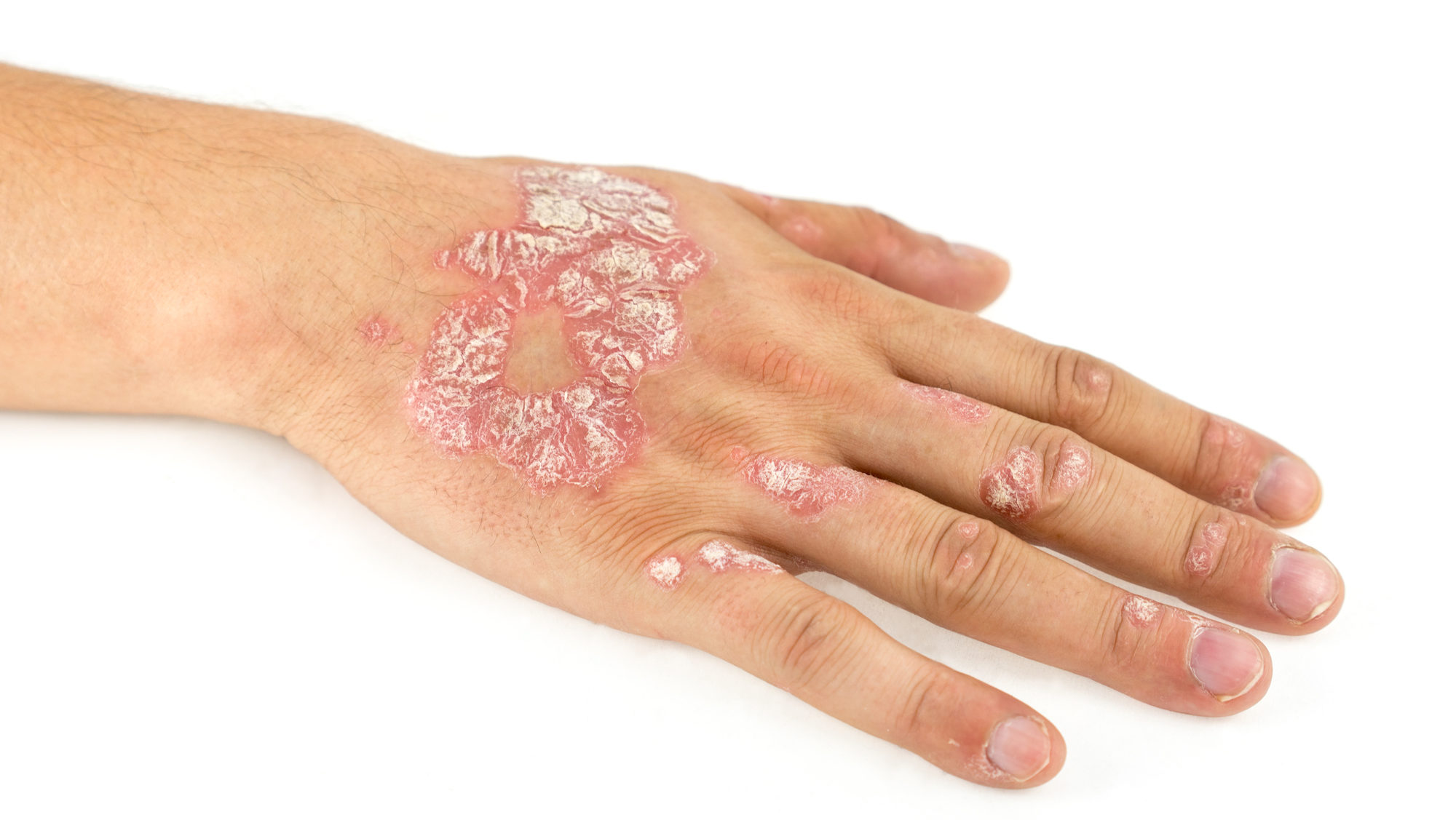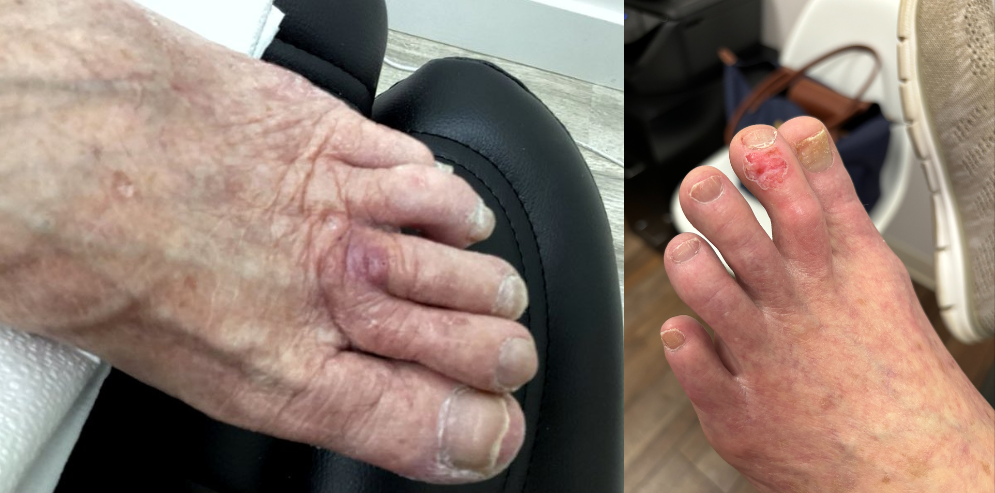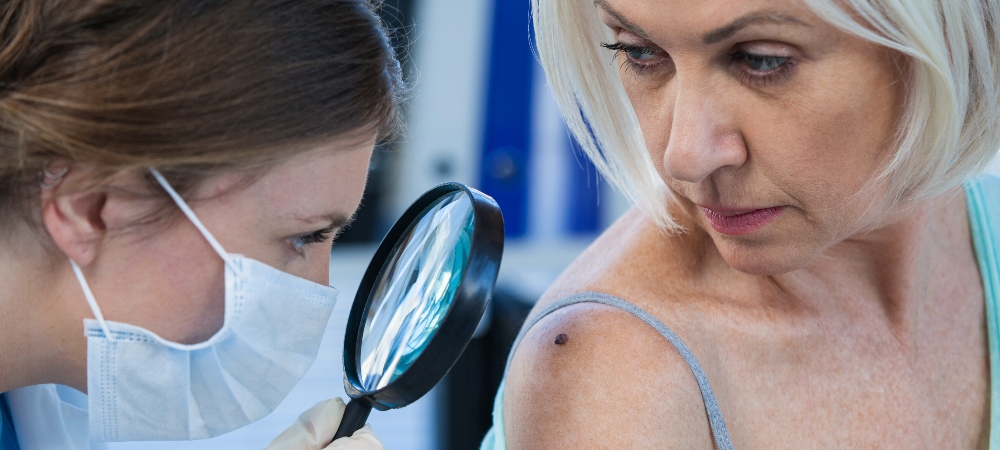
If you’re wondering about the features that distinguish psoriasis vs. skin cancer, you’re certainly not alone. Although the two skin conditions are unique, changes to one’s skin can be disconcerting, and they may cause a patient to jump immediately to the worst conclusions. So, although it is unlikely that your doctor would misdiagnose skin cancer for psoriasis, or vice versa, a non-specialist just might. We think that many will benefit from a closer look at the differences that set them apart.
What is Psoriasis?
Psoriasis is a non-contagious skin disease that causes a rash with itchy, scaly patches. The rash can develop anywhere on the body, including more sensitive areas like the eyelids, lips, skin folds, hands, nails, and feet. The disease has no clear cause, but it’s a long-term condition with no cure. Psoriasis tends to go through cycles where it subsides and then flares up for a certain amount of time. Medications, cuts, burns, and infections are common triggers for people who have a genetic predisposition for developing psoriasis.
Can Skin Cancer Be Mistaken for Psoriasis?
Many people compare psoriasis vs. skin cancer when they are searching for a diagnosis, but can skin cancer really be mistaken for psoriasis? It’s unlikely, except where non-melanoma skin cancers like basal cell skin cancer and squamous cell skin cancer are concerned.
Both basal cell skin cancer and squamous cell skin cancer can present as reddish, scaly patches of skin that may be mistaken for psoriasis. If you’re trying to distinguish some new presence on your skin, keep the following points in mind:
Psoriasis vs. Skin Cancer: Location
Psoriasis most often appears near the folds of the body, near the elbows, knees, and belly button. Skin cancer most commonly appears in the areas that see the most sunlight, like the face, neck, and hands.
Psoriasis vs. Skin Cancer: Scalp
Distinguishing skin cancer on the scalp vs. psoriasis can be a little trickier since both types of skin conditions can appear here. It’s helpful to keep in mind that psoriasis is usually softer—at least until it starts to scab over—and it may shed off flakes or plaques as you go about your day. Skin cancer is generally on the firmer side, and it doesn’t tend to produce flakes.
Psoriasis vs. Skin Cancer: Rash/Red Patches
Like certain rashes, psoriasis can cover large areas of the body when you are having an outbreak. Skin cancer, on the other hand, is usually isolated—until it becomes advanced and starts to spread. Still, if you notice large patches of red develop on your skin in a relatively short amount of time, you’re probably dealing with psoriasis, not skin cancer.
Important Note: It may also be helpful to distinguish psoriasis from eczema when you are working toward a diagnosis with your dermatologist.
Is Psoriasis a Cancer Symptom?
Psoriasis and skin cancer can often present with similar symptoms, and even have similar causes—overactive cell reproduction—but is psoriasis a type of cancer or a symptom? No. Certainly not. Although skin cancers can occasionally present as red scaly patches, psoriasis itself is not a symptom of the disease, and there is no known link between psoriasis and skin cancer.
Can Plaque Psoriasis Cause Cancer?
Again, no. Plaque psoriasis is one of five types of psoriasis — the most common, in fact. It affects up to 80 percent of people with psoriasis. Plaques can develop anywhere on the body and may look red with silvery-white scales on some people, while others may develop plaques that are more purplish. The four other types of psoriasis are guttate, pustular, inverse, and erythrodermic. None of these types are cancerous.
For Common Skin Cancer, Consider GentleCure™
If you receive a common skin cancer diagnosis, you should know that surgery isn’t your only option. GentleCure™ is a pain-free, surgery-free alternative that carries no risk of surgical scarring. Find out how it works today, and ask your doctor if it’s the right choice for you.








